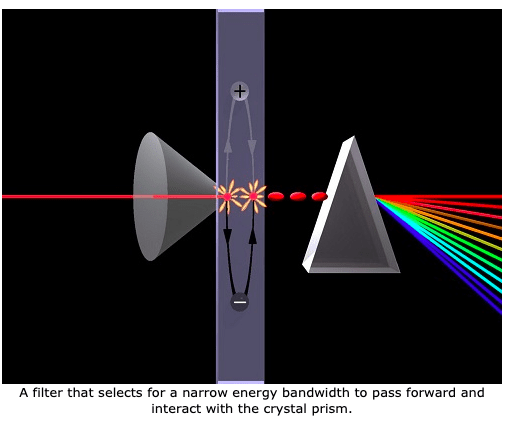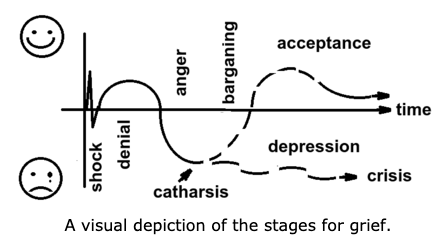This article was originally published in Medium, on February 14, 2019.
Thirteen years ago, I dropped out of grad school to learn how to reframe global warming. You know… climate change. The ecological crisis. Planetary collapse. What humans are doing to the planet and how it doesn’t bode well for our collective future or that of millions of other species.
I learned a lot along the way—and much of it had to do with a very dangerous topic. Grief and its relationship to trauma. As it turned out, most people trying to communicate the harms of global warming were doing so in ways that activate grief and trauma such that audiences shut down through some combination of the “3 D’s”: Denial, Delusion, and Disdain.
My efforts were made more difficult by the fact that I began training NGO staff personnel in the art and science of framing. In 2007 and 2008, I worked at the think tank of cognitive linguist, George Lakoff, and became something of an expert in the framing of environmental issues.
Why was this a problem? Because I was trying to show people the depths and nuances of all the ways our human minds construct meaning outside of conscious awareness. We employ metaphors like Earth as Mother and Nature as Exploitable Resource with such facility and ease that our mental apparatus is entirely invisible to us without special training.
So there I was, trying to teach people things about their own minds that were inherently dangerous and scary—all the while making it clear that they also didn’t know how their own minds work. It was a kind of double whammy. Deny the scary stuff and avoid thinking about how little control you have over your own thoughts.
Eventually I stumbled onto an essential insight:
Only a tiny portion of the educated population is far enough along in their own grieving process to be emotionally (and intellectually) capable of dealing with the planetary crisis we are all in.
So I had to find a way to construct a strategic frame that “filters forward” all of the people who are ready to step deeply into action and change their own lives to deal with our global predicament.
The image at the top of this article captures the idea pretty well:
- There are many “emotional frequencies” of distress and hope out in the world.
- The strategic frame “resonates” with only a tiny number of people who are emotionally aligned with it due to their internal capacities.
- These people “move through the filter” and discover new ways of interacting with the world.
- If gathered together, they become part of a “highly activated” community of change agents.
The strategic frame I constructed that does this is also the name of a workshop I’ve started giving—it is called Managing Planetary Collapse. One of the first things you may notice about this phrase is that most people are not drawn to it.
In fact, most people are actively turned off by it! This is intentional because it structurally weeds out those who are not emotionally ready to tackle our crisis head on. But there’s a lot more going on here.
Embracing A Paradox
The frame of planetary collapse is what turns most people off. So why do some still step forward? The answer has to do with a pesky little issue: how to remain in the discomfort of uncertainty long enough to figure out what you should do.
This is achieved by constructing a paradox.
Note how paradoxes juxtapose two logical inferences to reveal a subtle truth.
A paradox is a statement that seems to contradict itself, but then slowly reveals its hidden treasure. The juxtaposition of Managing with Collapse produces exactly this kind of internal tension.
If I can manage collapse, why can’t I avoid it? Don’t I need to have control of the fundamental drivers of change in order to manage their outcomes? And if I can control the situation, why can’t I stop terrible things from happening?
See how it works. This is a powerful mental construct!
Sustained Inquiry to Empowered Action
Those select few who “self-select” into this frame will recognize this logical contradiction. Yet they are also emotionally competent to stay in the tension of holding the paradox long enough to see the way through to the other side.
A powerfully insightful book on this topic is The Logic of Failure by cognitive psychologist, Dietrich Dörner. By having test subjects play computer games that simulate complex decision-making, he observed that people begin to make catastrophic errors when they stop asking questions. Said another way, only by remaining in an active mode of inquiry will people continue to update their mental models when dealing with a rapidly changing environment.
We are living in a rapidly changing environment today. So we need to find ways to keep ourselves in active modes of inquiry. A paradox does this very thing. As we struggle to answer the question “What can I manage in the midst of an unmanageable situation?” we begin to see that there is still quite a lot that can be done to safeguard humanity’s future.
But only when we are able to accept what we can’t change will we begin this constructive and empowering mode of inquiry. This gets us back to the stages of grieving. The people who have reached a level of healthy acceptance that many kinds of collapse are now inevitable will also gain the (unrecognized) ability to discern what they can do to avoid some of the collapse patterns.
And here is the beauty of the frame.
By constructing it in this way, I have managed to pool together groups of 20–25 individuals who are
(a) knowledgeable about the global situation;
(b) far enough in their grieving process to accept some major loss; and
(c) organized into a group learning activity about empowered actions for the future.
This is very strategic indeed. And so I have been testing it out by running workshops. You can sign up for the next one here. If this frame resonates (or more accurately, creates constructive dissonance) for you, then you are ready to go through an initiation ritual of community engagement.
Onward, fellow humans.
Joe Brewer has dedicated his life to helping humanity navigate global challenges as a complexity researcher, innovation strategist, and transdisciplinary scholar who brings a wealth of expertise to the adoption of sustainable solutions at the cultural scale. He weaves people and knowledge across fields to build capacities for systemic change.
He is a co-founder of the Cultural Evolution Society, a global scientific community dedicated to the study of cultural evolution, has been the culture editor for This View of Life at the Evolution Institute since 2014, is the co-founder of Evonomics Magazine dedicated to the evolution of economics, and has worked with a large variety of nonprofits, social-impact businesses, and government agencies to apply insights from the cognitive, behavioral, and evolutionary sciences to large-scale social problems.
The MAHB Blog is a venture of the Millennium Alliance for Humanity and the Biosphere. Questions should be directed to joan@mahbonline.org
The views and opinions expressed through the MAHB Website are those of the contributing authors and do not necessarily reflect an official position of the MAHB. The MAHB aims to share a range of perspectives and welcomes the discussions that they prompt.


